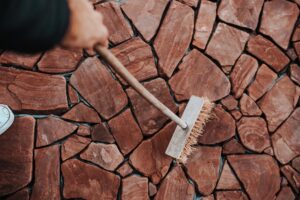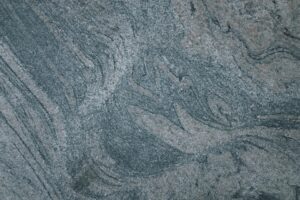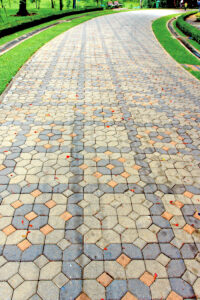Phoenix Tile Cleaning Services & Professional Carpet Cleaner
How to Clean Natural Stone
Natural stone is a broad category of mineral formations extracted from the Earth and used for various construction and decorative purposes due to their inherent beauty, durability, and unique characteristics. These stones have been formed by nature for millions of years through geological processes involving heat, pressure, and the cooling of molten materials. There are various types of natural stones, each with its distinct composition, appearance, and properties. Some common types include granite, marble, limestone, travertine, slate, sandstone, and quartzite. Natural stones are valued for their uniqueness, timeless beauty, and ability to add character and sophistication to architectural and design projects. The huge array of options available in the market allows individuals to choose stones that align with their preferences, creating distinctive and visually appealing spaces. Proper care and maintenance are essential for preserving the beauty and durability of natural stone. Depending on the type of stone, some may require sealing to protect against stains, while regular cleaning with specific products ensures longevity. It’s essential to use appropriate cleaning agents and methods suitable for the specific type of stone to clean natural stone effectively. Different rocks have varying levels of porosity and sensitivity to chemicals, so using the wrong cleaning products could damage the surface. Here’s a comprehensive guide on how to effectively clean natural stone: Before diving into the cleaning process, familiarize yourself with the type of natural stone you’re dealing with. Stones like granite, marble, limestone, slate, and travertine have distinct compositions and porosities, influencing their vulnerability to various cleaning agents and methods. Knowing your stone type ensures you choose the appropriate cleaning technique. Cleaning natural stone requires a delicate balance between maintaining its beauty and safeguarding its integrity. By understanding the type of stone, adopting appropriate cleaning techniques, and keeping it regularly, you can ensure your natural stone surfaces retain their exquisite appeal for years. Remember, the key to keeping these stunning surfaces pristine is gentle care and suitable, stone-specific cleaning agents. Regular sweeping or vacuuming to clean off loose dirt and debris also helps prevent scratching or abrasions during cleaning. Natural stone surfaces exude timeless elegance and charm, whether adorning countertops, floors, or even outdoor spaces. However, maintaining their beauty requires specific care to prevent damage and preserve their inherent allure. Cleaning natural stone involves more than just a generic approach—it demands a tailored method that safeguards its integrity while restoring its luster. Consider professional cleaning and sealing periodically, especially for high-traffic areas or if you’re uncertain about tackling specific stains or issues. Professionals can provide deeper cleaning and restoration while ensuring the longevity of your stone surfaces. Using natural stone offers a range of advantages across various applications and industries. Some of the key benefits include: Natural stone is incredibly durable and can tolerate heavy use, making it suitable for high-traffic areas like flooring, countertops, and outdoor spaces. It’s resistant to scratches, chipping, and general wear and tear, ensuring longevity. Natural stones like granite and quartzite are incredibly durable and impervious to scratches, heat, and chipping. They can weather the wear and tear of daily use in kitchens without losing their aesthetic appeal. Each natural stone type possesses unique patterns, colors, and textures formed by nature, providing an unparalleled aesthetic appeal. Whether it’s the dramatic veining of marble, the speckled patterns of granite, or the earthy tones of slate, natural stone offers a touch of elegance and sophistication to any space. Each natural stone slab is unique, featuring distinct patterns, colors, and veining. This uniqueness adds character and a luxurious feel to your kitchen or bathroom, making your countertops one of a kind. Natural stone is versatile and can be used in various applications, both indoors and outdoors. It’s used for flooring, wall cladding, countertops, backsplashes, landscaping, sculptures, and more. Its adaptability to different environments makes it popular for designers and architects. Installing natural stone surfaces often increases the value of a property due to its premium and timeless appeal. It’s a luxurious material that enhances a space’s aesthetics and perceived quality. Potential buyers often see their timeless appeal and premium quality as desirable features. Natural stone also increases resale value. Homes with natural stone countertops tend to attract more attention from buyers, as they are considered a high-end feature that adds sophistication and elegance to the kitchen or bathroom. While some stones require sealing and periodic maintenance, natural stones require relatively low maintenance overall. Routine cleaning with mild soap and water typically suffices to keep it looking pristine. Properly cared for, natural stone can retain its beauty for decades. Natural stone is a sustainable choice compared to some other building materials. It’s a natural resource that doesn’t involve significant manufacturing processes and is recyclable and reusable. Its longevity also reduces the need for replacements, contributing to eco-friendliness and sustainability. Unlike synthetic materials, natural stone does not release volatile organic compounds (VOCs), making it a healthier choice for indoor environments. It’s hypoallergenic, resistant to bacteria growth, and easy to clean, promoting better indoor air quality. When adequately sealed, natural stones are non-porous or have low porosity, which also helps prevent the absorption of liquids and minimizes the likelihood of harboring bacteria or stains. Some natural stones, like marble and limestone, have natural thermal properties, making them suitable for flooring in regions with varying climates. They can help maintain a comfortable temperature indoors, especially in hot or cold seasons. Natural stones like granite and quartzite are highly heat-resistant, making them suitable for kitchen countertops where hot pots, pans, and cookware are frequently used. Natural stone offers various options to suit unique preferences and styles. Whether you prefer the dramatic veining of marble, the speckled patterns of granite, or the consistent appearance of quartz, there’s a natural stone to match your design vision. Natural stone countertops can last for decades with regular sealing and maintenance. They are relatively simple to clean and maintain, requiring mild soap and water for regular upkeep. These advantages collectively make natural stone a preferred choice for homeowners, designers, and builders looking for durable, aesthetically pleasing, and long-lasting materials that elevate the appeal and value of spaces. In conclusion, cleaning natural stones is vital to maintaining their beauty, durability, and longevity. Natural stones offer numerous benefits, whether used for countertops, flooring, wall cladding, or other applications, and regular cleaning plays a critical role in preserving these advantages. Remember that different types of natural stones may have specific cleaning requirements, so it’s crucial to use appropriate cleaning agents and methods. Following manufacturer recommendations, using pH-neutral cleaners and avoiding harsh chemicals are essential for preserving the integrity of natural stones. Additionally, proper sealing, routine maintenance, and prompt attention to spills are critical aspects of a comprehensive cleaning strategy for natural stones in any application. Before choosing a natural stone for your countertops, consider maintenance requirements, porosity, and susceptibility to staining. Periodically sealing the stone is also important to secure it from potential damage and ensure its longevity. Consulting with a professional to properly clean and maintain natural stone surfaces and address other needs can help you make a knowledgeable decision for your home.
What Are Natural Stones
Here are some key features of natural stone:
How to Clean Natural Stone
Understanding the Basics:
General tips for cleaning natural stone include:
Daily Maintenance:
Deep Cleaning:

Tips for Specific Stone Types:
Additional Dos and Don’ts:
Professional Maintenance:
Keeping natural stone clean is essential for several reasons:
Advantages of Natural Stone
1. Durability
2. Aesthetic Appeal
3. Versatility
4. Increased Property Value
5. Low Maintenance

6. Environmentally Friendly
7. Health Benefits
8. Temperature Regulation
9. Heat Resistance
10. Variety of Options
11. Longevity and Low Maintenance
Clean Natural Stone Surfaces Properly